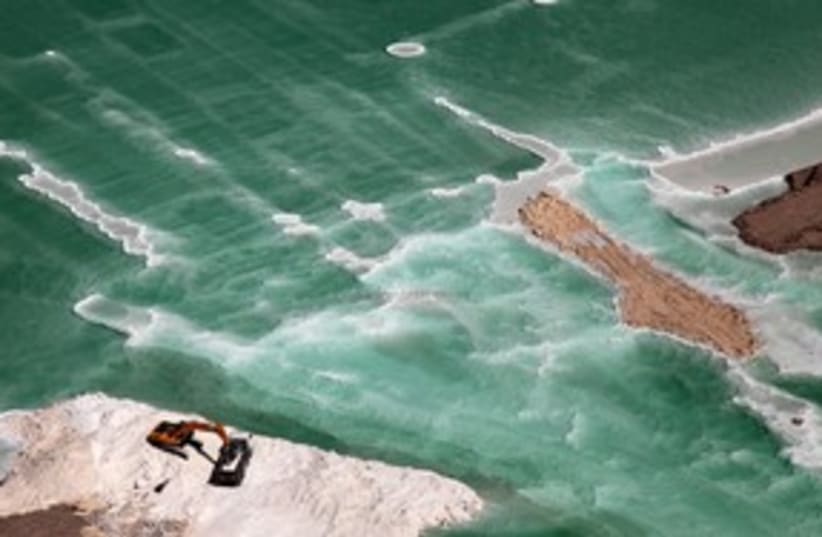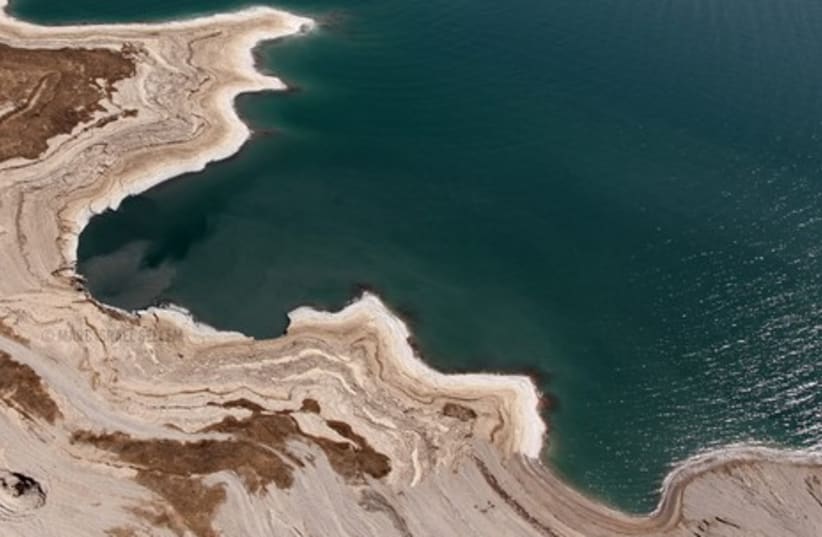
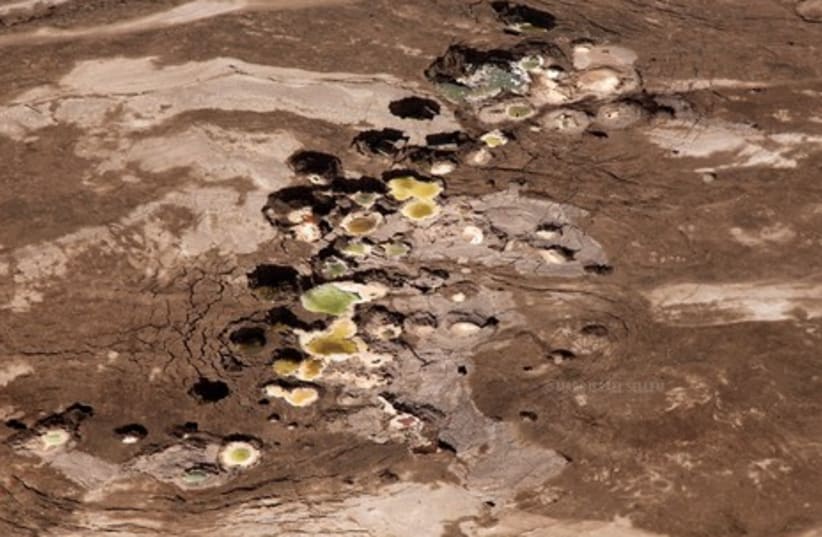
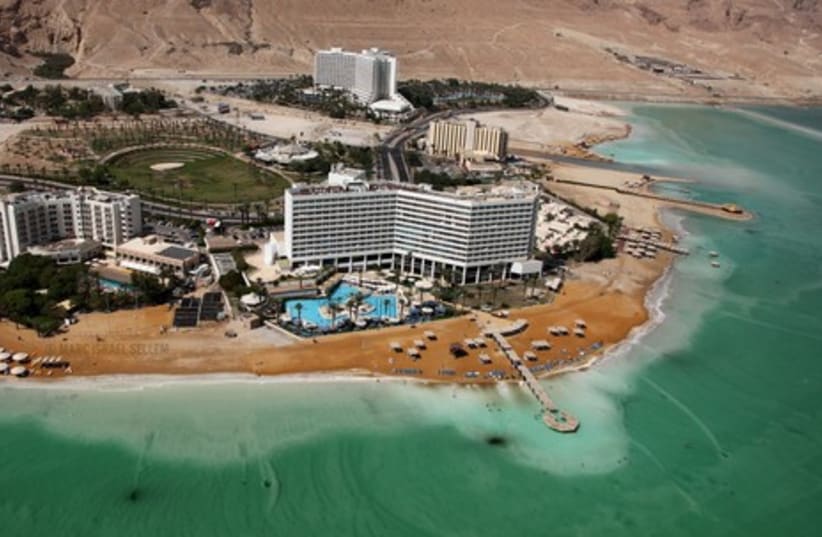
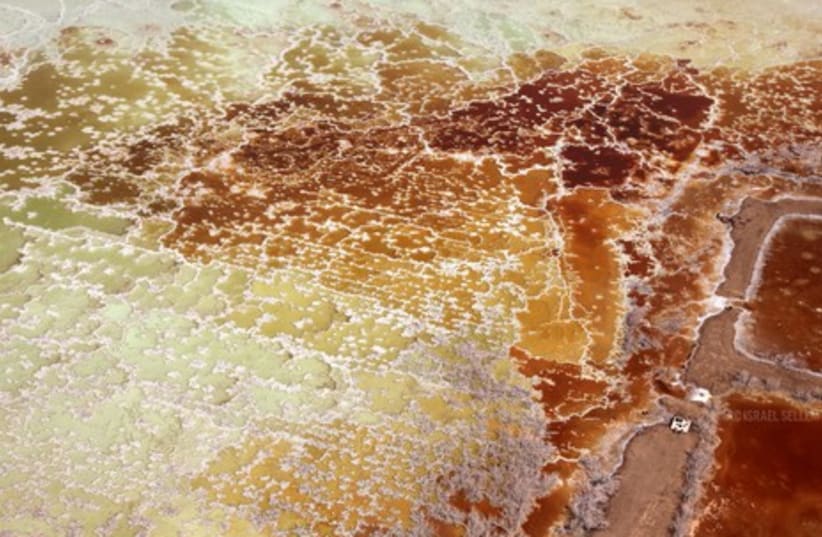
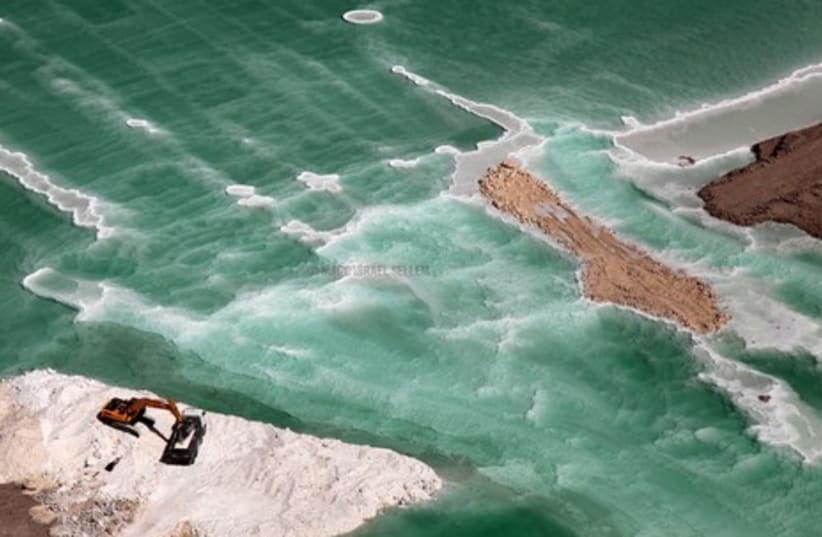
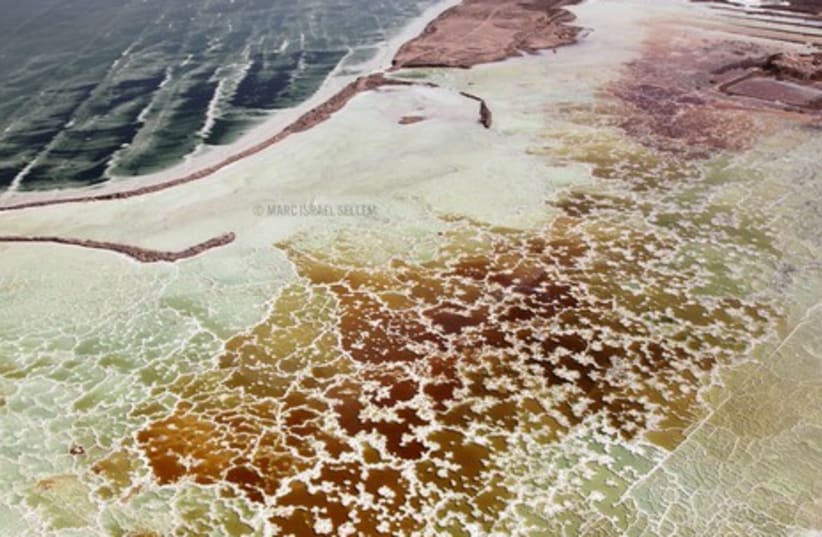
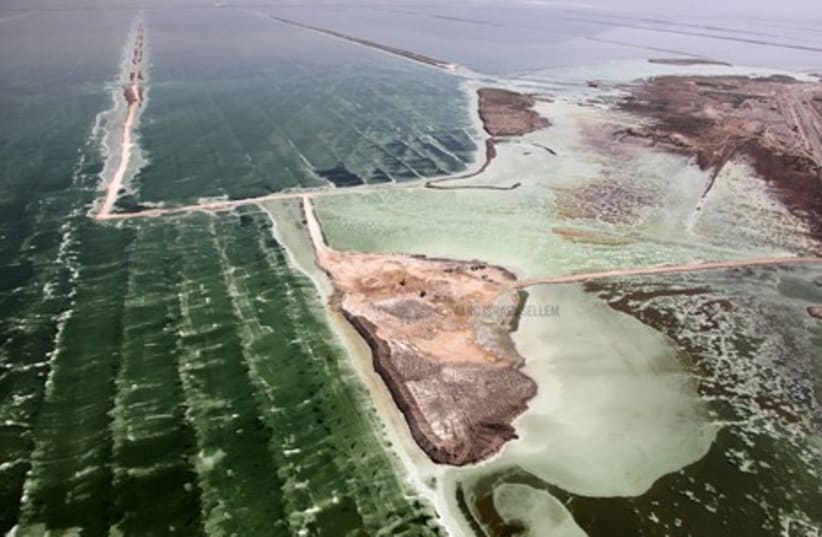
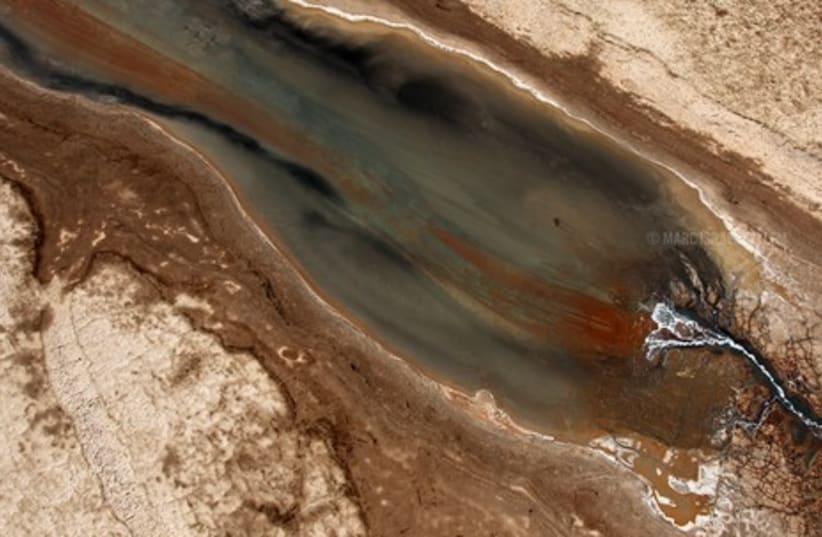
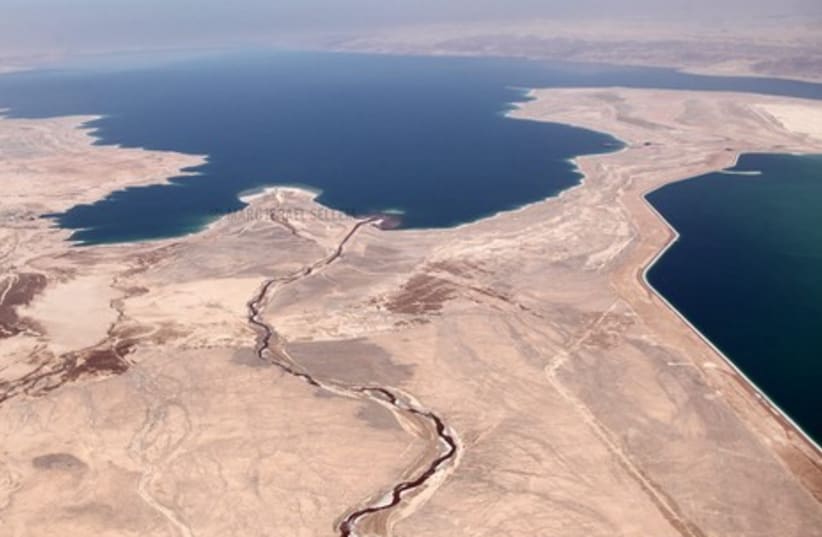
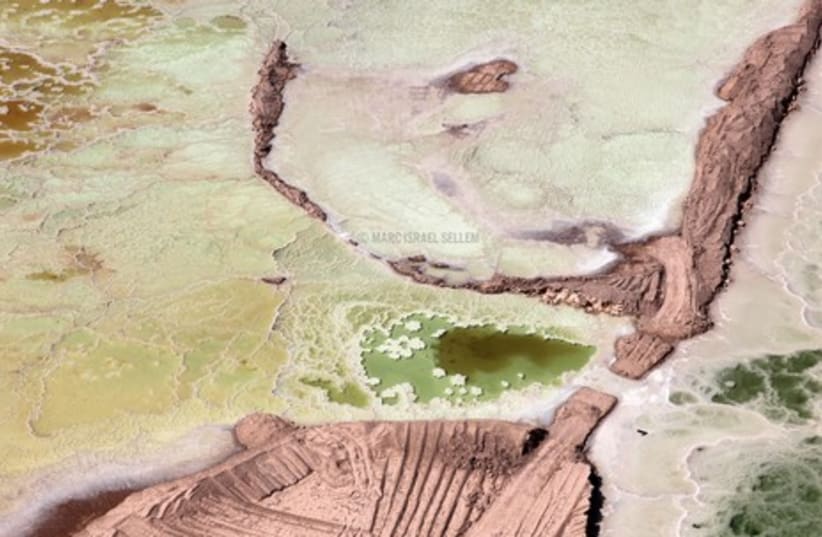
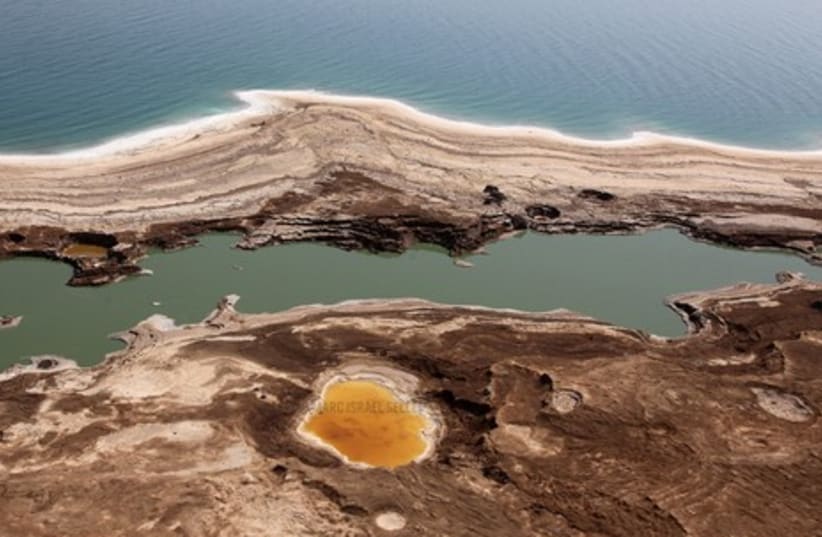
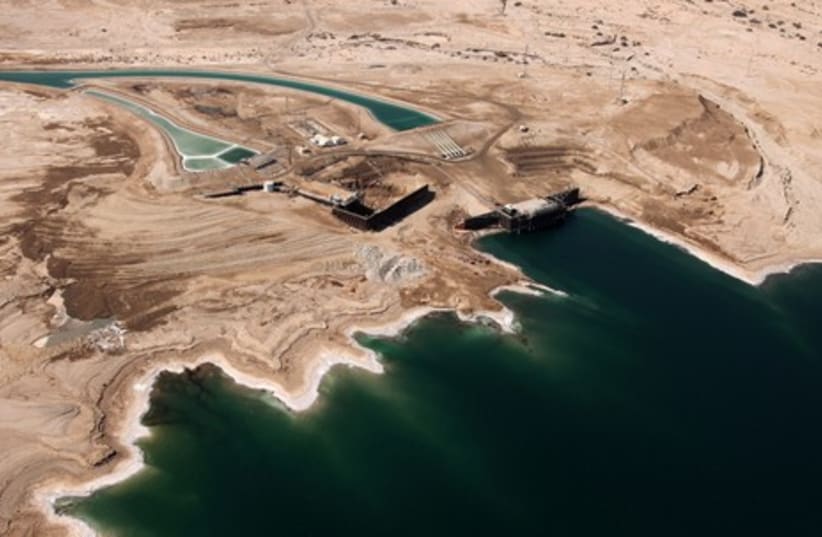

“When I came to Kalya, the water was near the road,” he said, gesturing toward Route 90.RELATED:Bar Refaeli tweets for public to secure Dead Sea win Dead Sea in top 10 as new 7 Wonders vote nears end Since then, the beaches have receded a good 400 meters to 500 m. from this spot, he estimated.While a victory in the competition, which concludes on Friday at 1:11 p.m. Israel time, would by no means refill the sandy shores with the water that once sparkled there, Flexer and other residents of the area believe it would bring an unparalleled boost to the region’s leisure and sightseeing industries. In hopes of securing this win, the government has invested millions of shekels and conducted widespread public relations campaigns both in Israel and abroad.Flexer, who was born in Argentina and moved to Israel with his parents at age seven, founded the kibbutz with several of his peers from the Kfar Hayarok agricultural high school in 1972, when he was 18.He and the others on the kibbutz – which began with 50 people and only 15 houses – quickly called the place home.“Since then, we built, built, built,” he said. “I built it, I love it.”Blooming with purple flowers and palm fronds, Kibbutz Kalya makes around 50 percent of its income from tourism, most of which comes from visitors who spend time at the adjacent Qumran archeological site. In total, 350 people live in Kalya; among these are about half of the kibbutz children – including one of Flexer’s four children – who have stayed on and formed their own families.The kibbutz features a stable of horses, rows of milking cows and a turkey pen, as well as 100 hectares of thriving date trees – and of course, the glittering Dead Sea waters on the other side of Route 90.During a tour of that beach on Thursday, Flexer lamented the water’s drastic recession.“You can see where we needed to put a boat dock on the sea six years ago,” he said, pointing to a large wooden platform on stilts, now only providing access to desert sands below. “Every year, the water goes down a meter – so you need to run after the water.”The water’s retreat is specifically problematic for kibbutz beach management, he explained, as “each time the water recedes, we need to build new bathrooms” for older visitors who can’t walk as far. The most recent facilities, which are still relatively new, cost the kibbutz NIS 750,000, he said.“In another few years, there won’t be a beach here,” he added.Back in the 1960s and ’70s, according to Flexer, the Dead Sea received replenishments of 1.5 billion cubic meters annually from the surrounding streams and rivers, but it currently only receives about 500 million cu.m., as the Jordanian and Israeli governments sorely need water for other purposes.But climbing down the wooden stairs toward the beach below, tourists seemed unaware of the sea’s dire straits, clamoring excitedly to take photographs of a beachside bar sign that read: “The lowest bar in the world.”About a 10-minute ride south of Kalya, other tourists eager to take the Dead Sea home with them filled the Ahava Dead Sea Laboratories factory store to capacity that same day.“We started from a fairytale, [that] you go into the water and come out feeling like a baby,” said Dr. Ze’evi Maor, vice president for research and development at Ahava and also a Kalya resident for nearly as long as Flexer. “Then we went scientific.”Maor took The Jerusalem Post inside his laboratories, where researchers were mixing various combinations of apricot, olive and tea tree oils, with minerals from the mud and saltwater unique to this region.Meanwhile, visiting customers peered through glass windows to watch people at work on their favorite creams and lotions.“Cleopatra paid a lot of money to the Hashemite kings to have exclusive rights to the mud here,” Maor noted, referring to legends that the Egyptian queen used Dead Sea mud for medicinal purposes.Stressing the need to protect the Dead Sea from further damage, Maor said the salty body was simply “a part of us.”“We really feel that the world has a treasure and we are lucky to be able to enjoy and to study it,” Maor said. “I’ve been doing more than 20 years of research to know how it works, but it has been used by humans for more than 20 years. [It’s only now that] we have the science to understand it. We have to do everything to protect this natural treasure.”Winning the contest, in Maor’s opinion, could help bring about that increased protection.“If the Dead Sea is one of the seven natural wonders, this would mean that the world has some responsibility to push the governments of Israel and Jordan to avoid abusing and doing anything that is not protecting the Dead Sea, and to maintain sustainability,” he said. “We don’t have much time if every year we lose one meter.”The local regional council heads – Motzi Dahaman of Megilot, which borders the sea to the north, and Dov Litvinoff of Tamar, which lies to the south – have been leading their communities in massive efforts to get out word about the vote locally.“For the region, it’s the best opportunity to bring awareness of the problems of the Dead Sea all around, not only in Israel, but also internationally, to see what a wonder of nature this place is – but [also] that we have to do something to preserve this wonder,” Litvinoff told the Post over the phone on Thursday afternoon.“Today we have about 1.5 million [people here] a year, and winning this competition will bring people who want to invest in the area and who want to travel to the region,” he added.Litvinoff said he believed that the Dead Sea merited one of the coveted seven spots, but expressed fear that without the New7Wonders logo, the Dead Sea could be forgotten by government officials.While tourist Jenny Buck from a British Franciscan Ecumenical group called the Dead Sea “corrosive” and didn’t think she would choose the Dead Sea as one of the wonders, other tourists roaming around the Qumran site gift shop seemed more positive about the site.“I’m quite sure it should be [chosen] because it’s the lowest point in the world,” said Lucas Kai, from Canada, visiting as part of a Bible study group.Another member of his tour group, Theresa Ko, added in its favor that “we can float. Also, God promised at some point that there will be fish in the Dead Sea.”Nancy Adams, visiting from Nashville, Tennessee, said her group’s guide had specifically asked the entire bus to vote for the Dead Sea.“It’s a phenomenon,” she said.The tourists’ thoughts echoed Flexer’s words in Kalya.“There are many reasons why the Dead Sea is important,” he said.“It’s the lowest point in the world, it’s the saltiest water in the world... [and] there is no other place more beautiful than this one.Until the contest’s conclusion, voters can send SMS messages casting their ballots for the Dead Sea by texting the words “Dead Sea” in English, Hebrew or Arabic to the number 2244, or by www.new7wonders.com or www.votedeadsea.com.
